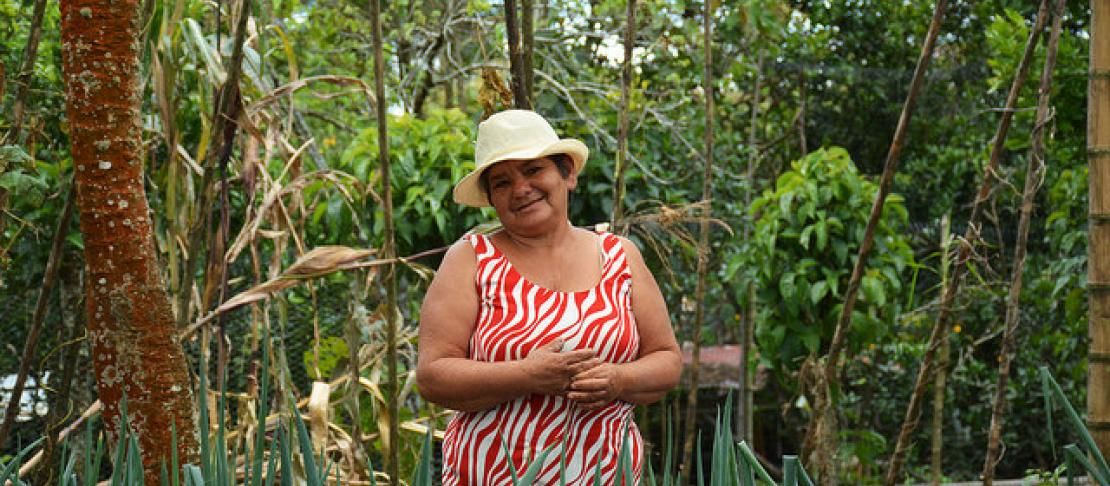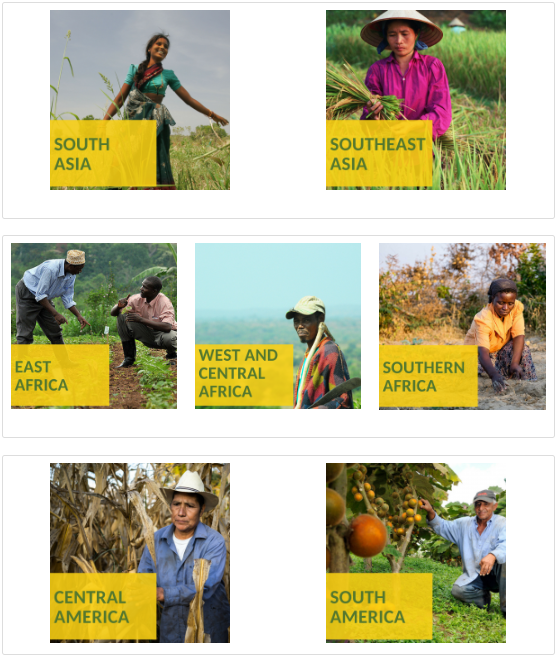A gendered approach to climate-smart agriculture: A compilation of sex-disaggregated data in CCAFS publications

A new webpage brings together publications with a focus on gender and sex-disaggregated data.
The need for sex-disaggregated data in agriculture and climate research is increasingly recognized by the scientific community and policy makers. In an effort to highlight resources related to gender and climate change, the CGIAR Research Program on Climate Change, Agriculture and Food Security’s (CCAFS) Gender and Social Inclusion Unit has compiled over 100 publications related to gender and climate-smart agriculture (CSA) in seven regions around the world (South Asia, Southeast Asia, East Africa, West and Central Africa, Southern Africa, Central America, and South America) on a new webpage.
Search over 100 CCAFS publications on gender and CSA by region and country on our new webpage
Feeding the world’s growing population often falls to smallholder farmers, and climate change is making their job even more difficult. Global climate change projections indicate higher temperatures, more extreme droughts and heat waves, and changes in pest management and rainfall, to name a few impacts. Partnerships around the world, including those between farmers, research institutions, and governments, aim to build resilience through climate change adaptation strategies. For these strategies to be successful, however, the gendered impacts of climate change must be considered.
CSA aims to reduce greenhouse gas emissions, increase agriculture production through sustainable methods, and increase the resilience of food systems. To ensure gender equity in these processes, gender roles must be considered. Research on gender and climate change-related topics are continually undertaken by CCAFS scientists. A sampling of their work includes research from South Asia, which examines the role of gender in climate change vulnerability. In East Africa, researchers examined how demographics, including gender, impact technology adoption patterns. A 2017 study from South America explored gendered practices in Colombia’s livestock sector. Additionally, data-rich outlines of CSA in specific countries are included in country profiles, found under their respective regions on the CCAFS website.
Through this research, CCAFS contributes to the ongoing discussion and body of work regarding climate change adaptation and smallholder farmers. Including a gender component in this research will allow both men and women to have a voice in decision making processes as well as benefit from new technologies.
Read more:
- Blog: Gender-responsive climate change science: Why it matters
- Blog: New book chapter addresses the links between gender, climate change and agriculture
- Blog: New papers highlight the need for a gendered approach to policy and development
Kathlee Freeman is a Communications Consultant for CCAFS Gender and Social Inclusion.




